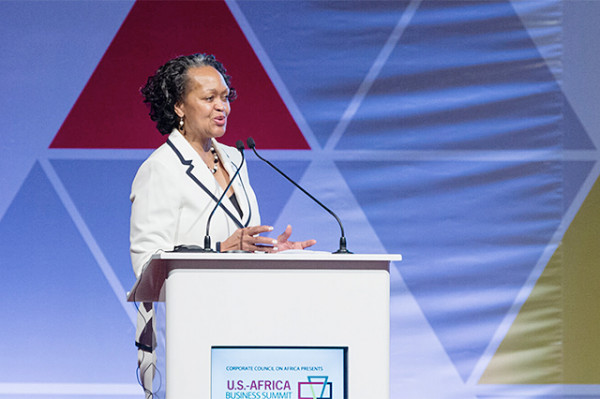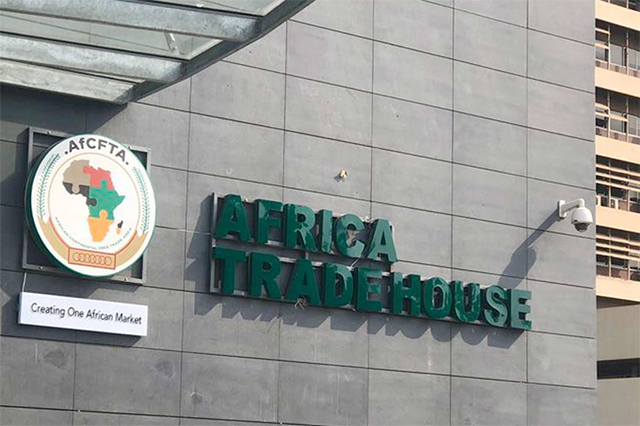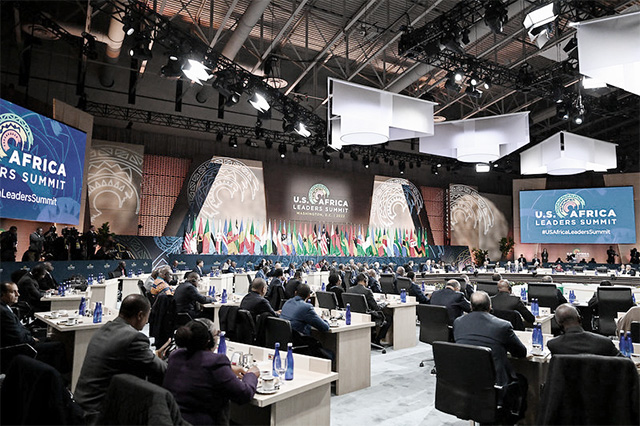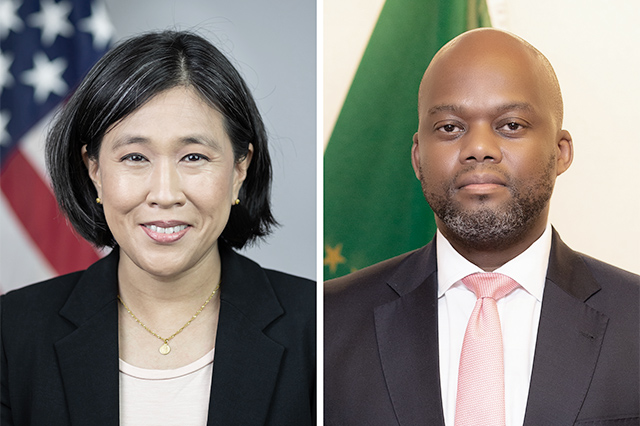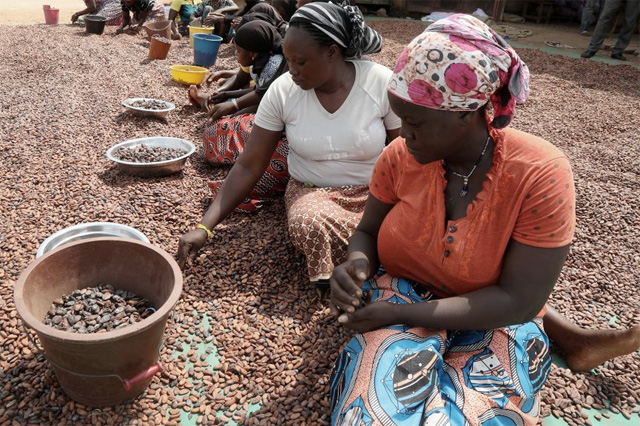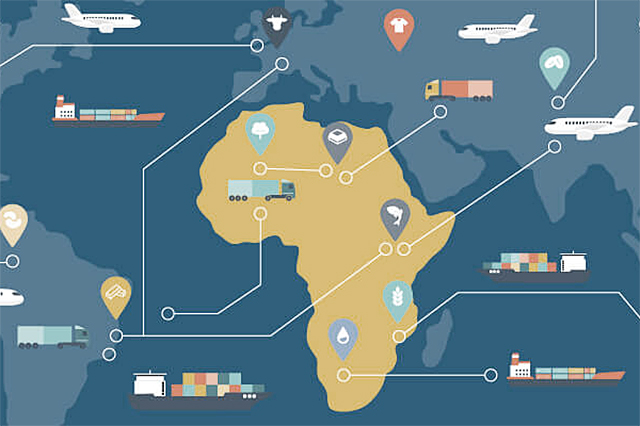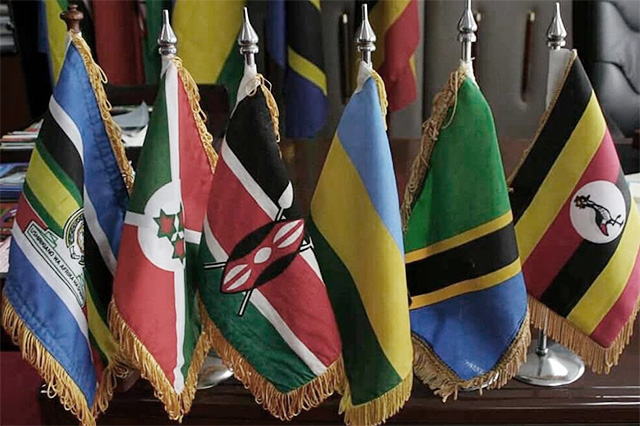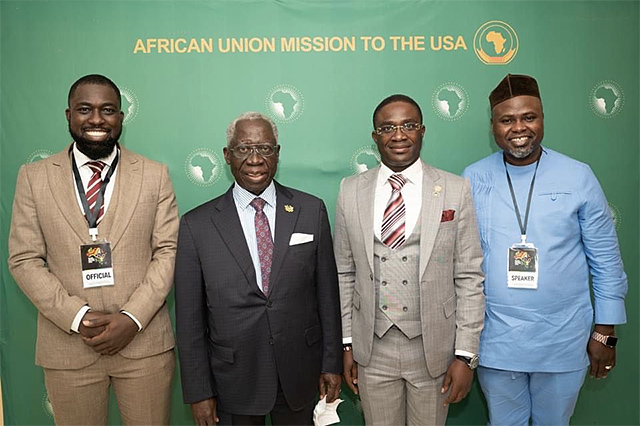'US-Africa trade will be positively impacted by AfCFTA' - CCA
The Corporate Council on Africa (CCA) is the leading business association focused solely on promoting business and investment between the United States and the African continent.
In this time of pandemic, both the continent and the US are looking for ways to strengthen their relationship.
The CCA works with governments, multilateral groups and businesses to improve Africa’s trade and investment climate, and to raise its profile for the US business community.
President and CEO Florizelle Liser speaks to The Africa Report on the present and future of Africa-US business relations and on economic recovery post-pandemic.
TAR: What are the most important collaborations that have happened between the US and African countries during the fight against the pandemic?
Florizelle Liser: The most important collaborations are those that have been driven largely by the Africans. Under the guidance of the African Union, a coordinated African response to the pandemic has been launched, including the establishment of a new AU platform to procure PPE, pharmaceuticals, and other products needed to fight the COVID-19 pandemic.
Institutions like the African CDC, the World Bank, UNECA, and Afreximbank have also mobilized their resources to support the African response to the health crisis caused by the coronavirus.
To address the significant economic crisis that the virus has caused in Africa (with economies shutting down, no tourism, airlines grounded, and the crash of commodity prices), the AU has appointed four “envoys” to develop a strategy for economic recovery and to work with multilateral institutions (like the World Bank and IMF) as well as bilateral partners to provide debt relief, an increase in SDRs, and other monetary/fiscal measures that are critical to Africa’s post-COVID recovery.
The US government has contributed more than $1.3bn in assistance to fight the pandemic in over 120 countries, including more than $361m in sub-Saharan Africa.
Finally, the private sector has stepped up to play a critical role. African companies have taken the lead on this, and US companies are developing medicines and vaccines and providing ventilators and other medical equipment needed to fight COVID-19. American businesses operating in Africa, like their African counterparts, are providing financial, logistical, technology and in-kind support across the continent.
What sectors or countries do you think have the greatest potential for US corporates looking at Africa, and why?
First, Africa’s health sector – where its fragility has been highlighted by the current pandemic – provides many opportunities for US companies to invest in order to improve African health systems security and resilience in the future.
Other sectors such as ICT, digital platforms, and electronic trade and transaction systems also offer new possibilities for US companies looking to invest or enhance their investments in Africa.
Is there one region of Africa (West, East, North, Central) that is more open to US investment/business?
All regions of the continent offer opportunities for US investment and business.
This is particularly true in view of the African Continental Free Trade Area (AfCFTA) which will form the largest free trade area in the world. Africa’s fragmented market and many small, landlocked countries will, through the AfCFTA, create larger subregional and continental markets and will allow Africans to participate in and benefit from regional and global value chains.
African manufacturing will also likely increase as they potentially benefit from buyers diversifying their sourcing and production of key products away from China where COVID-19 revealed global over-reliance on its production.
The pandemic has stressed the necessity of regional cooperation. Do you think that the AfCFTA will have adverse effects on US-Africa trade, or can the two survive well side by side?
I think that the AfCFTA will be a potential game-changer in terms of trade amongst Africans as well as with its global trading partners.
The removal of cross-border barriers to intra-African trade, market liberalization and economies of scale enhanced by regional markets will make African products more competitive regionally and globally.
I, therefore, think that US-Africa trade will be positively impacted by AfCFTA and that increased intra-African trade will thrive alongside its trade with its global partners, including the United States.
Are you happy with the institutional changes in US economic diplomacy under the Prosper Africa banner? How will we know if it is more than just rhetoric, what markers should we look for?
I welcome Prosper Africa as a US government initiative that will bring together some 17 US government agencies into a “whole of government” effort to support US private sector investment into Africa.
Coordinating US government support to businesses, including “deal teams” that now exist at every US embassy across the continent, will – in my view – level the playing field for US companies that compete on a global scale to significant support from their governments to do business in Africa.
Africans often express a desire to do more business with American companies who provide value for dollar on their products as well as practices that support technology transfer and capacity building.
What kind of effect will the elections have on the US government collaborating with Africa?
The United States has had a longstanding and constructive economic as well as political relationship with Africa – one that has been ongoing through various US administrations.
In terms of the US-Africa trade relationship, the cornerstone US trade initiative with sub-Saharan African nations – i.e., the African Growth and Opportunity Act (AGOA) – was launched in 2000 with strong bipartisan support in the US Congress.
Through various extensions of AGOA (including the 2015 legislation that extended the program through September 2025), each US administration in power has worked closely with Congress and African governments and private sector to enhance the US-Africa trade and investment relationship.
This has been done through a range of programs and initiatives, including AGOA, Bilateral Investment Treaties (BITs), Trade and Investment Framework Agreements (TIFAs), PEPFAR, MCC, Power Africa, YALI and many others.
Corporate Council on Africa (CCA) has through its 27 years been the premier US business association solely focused on Africa and promoting US trade, investment, and business engagement with the nations of Africa.
We look forward to continuing to provide a platform for US and African government and private sector leaders to come together to enhance that relationship.


